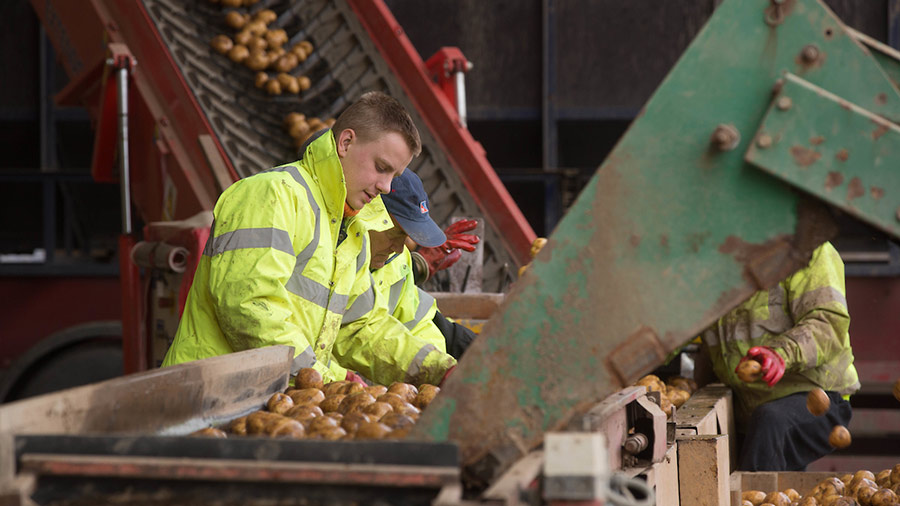Farming snubbed in review of shortage occupation list
 © Tim Scrivener
© Tim Scrivener The agriculture and horticulture industries have been overlooked in the first major review of the government’s Shortage Occupation List (SOL).
There are currently no agricultural roles included in the list and the recommendation from the Migration Advisory Committee (MAC) is that this should not change, at least for the near future.
The NFU said it was disappointing labour shortages impacting several farming sectors had not been recognised by the MAC for inclusion on the list.
See also: Labour shortage creating major issues for dairy sector
NFU deputy president Tom Bradshaw said: “Whether it’s a shortage of milkers or tractor drivers, we know farmers are having difficulty recruiting long-term for vital roles in their farm businesses.
But he added: “It’s positive that the Migration Advisory Committee is open to hearing more about these shortages and we’ll gather the evidence required.
“In the meantime, the horticulture and poultry sectors’ acute seasonal needs should be fully investigated as part of the MAC review of the seasonal worker scheme.”
The NFU submitted a request in May for eight agricultural occupations to be considered for inclusion on the list.
These were:
- Machine operator (field)/harvest operator
- Dairy technician
- Horticulture/potato supervisor with language skills
- Egg grader
- Poultry shed cleaner
- General farmworker
- Hatchery operative/catcher
- Machine operator (packhouse).
In making its request, the NFU argued that all the roles are experiencing shortages, but “were vital for the maintenance of production and growth in the wider agricultural and horticultural sectors”.
The review (PDF) recommends a total of 10 occupations should be added to the SOL, including construction and building traders, brick layers, roofers and care workers.
The list now contains more than 40 shortage occupation types, but none are in agriculture and horticulture.
Major review
The government commissioned the MAC to carry out a major review of the list and to make recommendations on any occupations which should be added.
The SOL lists occupations where there is a shortage of suitable skilled labour in the UK, and where it is sensible to fill those shortages with migrant workers through a skilled work visa.
Inclusion on the list grants an occupation more favourable migration conditions, with the aim to increase the number of applicants for certain roles and reduce labour shortages.
Overall, the MAC says it is not convinced the list provides a sensible immigration solution to UK labour shortages and the government should abolish it going forward.
Instead, it suggests that in future it could be commissioned to examine individual occupations or sectors where labour market issues seem particularly acute, possibly as part of a cross-government approach.
